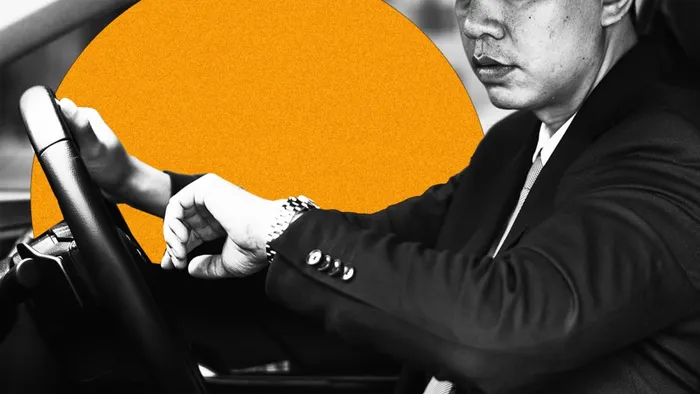
In the same week that Uber showcased a piloted a robot to deliver food in the US, the ride hailing/food delivery company hosted a “Future of Work” event in South Africa. During the same period FairWork in Austria unveiled a report that rated Uber as one of the poor performing platforms to work for in terms of working conditions.
These activities capture issues (automation,changing nature of work and working conditions) that need to be taken into account as we reflect about the future of work in the world that is technology driven. We are headed towards a future that will make use of robots and this has raised questions about the role of human beings in the workplace. When Uber was showcasing the robots pilot programme, the company indicated that “it will be some time before this technology is operated at scale” this is true in the African continent where adoption of technology takes time. For now, the issue that everyone is grappling with is the condition of work for drivers/owners who are using the ride hailing platform.
On one hand, some car owners are complaining about an unbalanced relationship between Uber and drivers/owners. In addressing the challenges related to work with tech companies there’s a need to take into account the different schools of thought to arrive at a conclusion that assists with solutions.
One school of thought was very well articulated by Prof Mthunzi Mdwaba who was the keynote speaker at the “Future of Work” event organised by Uber. He pointed out that there’s a need to embrace technology in view of our current SA’s unemployment challenge. He said “technology cannot be controlled, innovation will happen whether we like it or not".
He indicated that Uber is providing work that should be appreciated.
In this regard, Prof Mthunzi is correct about work provided by Uber. When Uber came into the scene it created a platform for people to consider alternative ways of earning an income. Today a student can serve as a driver instead of only a choice of being a waiter. People can work in multiple companies and decide when they want to work. There’s no question about the flexibility provided by working with Uber. Not only has this ride hailing company provided a platform for work, it has also introduced a new model which has been adopted by other companies. Today, just about everyone is trying to apply an Uber type model which can be better referred to as Ubernomics. Today there’s an Uber like product for just about anything you can think of. All of this can be attributed to Uber. Society however has not yet adapted to this model and hence you have a situation where labour activists are raising concerns about the Uber model. Entities that are representing drivers are highlighting another element that needs to be taken into account.
Their school of thought is that drivers should be treated as workers and that their working conditions should be conducive enough for them to execute their tasks with ease.This school of thought is shared by the United Kingdom courts. The Supreme Court justices ruled unanimously that although Uber said it was only a technology platform that connected drivers with passengers, it behaved more like an employer by setting rates, assigning rides, requiring drivers to follow certain routes and using a rating system to discipline them. The decision was a major victory for labour activists in the United States and Europe who are pushing for better wages and stronger protections for workers with services like Uber, Lyft, DoorDash and Grubhub, which have long been criticised for how they treat their drivers and delivery people. In Africa however drivers are still independent and are not treated as employees.
As a result, labour activists and some unions in Africa who regard the ruling as a victory would like to see the legal principle followed in the continent. In this regard and in relation to demands by labour activists and unions, Mdwaba argued that unions do not represent the entire workforce. This also means that other views should be considered to find a solution to the future of work challenges in the tech driven world.
Another school of thought worthy of our consideration advocates for a middle ground between independence and support. This would mean drivers maintain their independence and engage with Uber as equal.. The tech company would treat drivers and owners as an important stakeholder that is consulted before decisions are taken. This is a school of thought that is embraced by a co-operative ride hailing company like Drivers Co-operative.
They developed Co-op Ride, an app that takes the freedom and independence that Uber and Lyft promised rideshare drivers, and adds in worker ownership. Each driver is also a member who owns one share of the company, with one vote toward leadership and business decisions. Their model includes sharing of profits with driver-owners. The co-op upends the traditional model where the profits generated by workers accrue to executives and shareholders, instead redistributing them back to the drivers. Co-op Ride says that drivers earn more on each trip—8 to 10% more than Uber and Lyft rides, according to the cooperative, because it takes a smaller commission—and all profits go back to the drivers in the form of annual dividends, based on how much labour they contributed; the more trips they complete, the bigger their share of profit.
The three schools of thought should be studied very carefully in the process of shaping the future of work that is driven by technology.
Wesley Diphoko is the Editor-In-Chief of Fast Company (SA) magazine
Related Topics:
